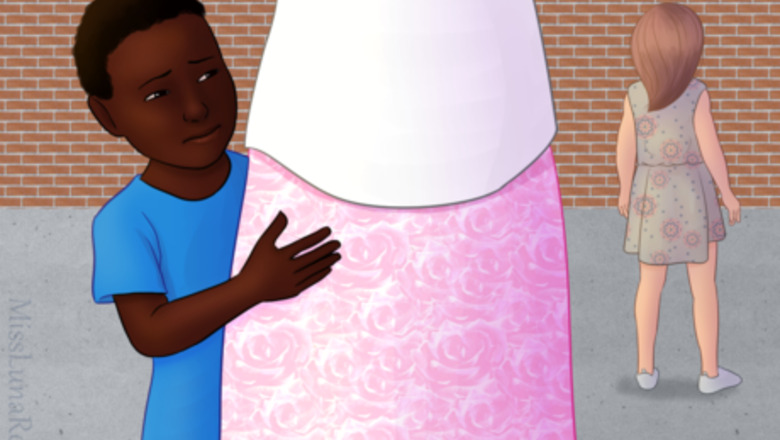
views
Analyzing Symptoms
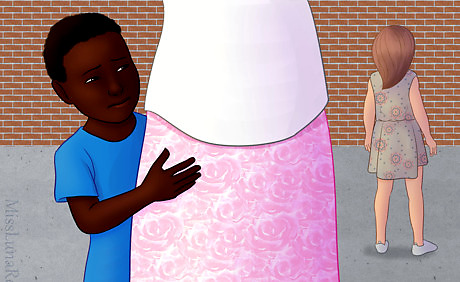
Recognize how autism and social anxiety can look similar. Both autistics and people with social anxiety experience social difficulties, and may be happier being alone than being in a group. Shared traits can include: Lack of eye contact Spending more time alone Actively avoiding people at times Avoiding situations that require social interaction (e.g. school or parties) Social awkwardness Only feeling comfortable around a few people Not speaking much; quiet or withdrawn in social situations Isolation
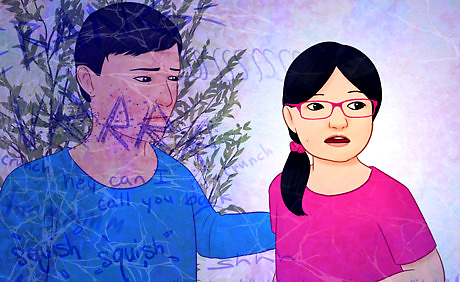
Consider the motivation for social avoidance. An autistic person may experience confusion and sensory overwhelm in social situations, and may be less interested in seeking out social activity. (This varies.) A socially anxious person does not experience sensory issues, and withdraws for fear of being judged. Autistic people may also be nervous in social situations. This is usually because they have had bad experiences, such as misinterpretations and bullying. Autistics struggle to guess what others are thinking, which can be stressful, and may result in social mistakes. People with social anxiety can read faces and body language just fine, but may experience cognitive distortions such as "She's laughing because she thinks I'm a fool." If a person with social anxiety is in a situation where they feel comfortable, you're going to see a reduction of symptoms. However, an autistic person will still have their unique habits regardless of whether they're feeling anxious.
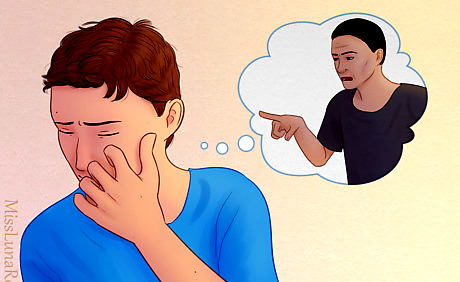
Watch for social fears. People with social anxiety may experience out-of-control fears. They may worry about being judged by others, facing embarrassment, and dealing with rejection. These fears are persistent, regardless of whether others are judging them or not. Autistic people may have some concerns about socializing, but these are usually related to past mistreatment. For example, if bullies are stopped and the autistic person makes some good friends, the autistic person won't be so nervous around those friends. Someone with social anxiety may experience physical symptoms of anxiety in social situations; they might feel tense, shaky, nauseous, sweaty, have trouble catching their breath, or feel their heart racing. Children with social anxiety might throw tantrums when forced to face a social situation. Autistic children are more likely to be distressed by unfamiliar people or situations, or sensory overload, which can result in meltdowns (which may look like tantrums) or shutdowns.
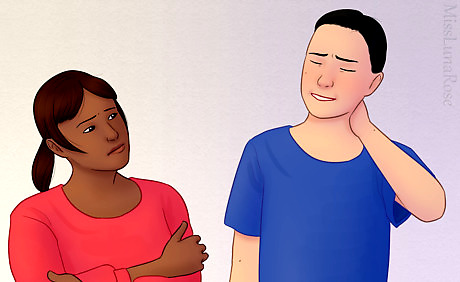
Look at social skills. Autistic people don't know how to respond to many social situations. (For example, they may not know how to make friends.) They don't have the needed social skills. People with social anxiety have the skills, but become too scared to use them. Their fear of socializing makes it difficult to use the skills they already have. In a social situation, someone with social anxiety might have shaky hands, blush, not make eye contact, and stammer or stutter. Their mind may go blank, making it difficult for them to carry on a conversation. As a result, they may appear to have poor social skills, when the reality is that they're anxious. An autistic person may fidget in social situations. However, this is normal autistic body language, and it helps them be comfortable. They will do it when they are alone, too. Autistic people may have difficulty reading and using tone of voice or facial expressions, not recognize when someone is interested or disinterested, or talk too much or too little. This is not present in social anxiety.Did You Know? Social anxiety can develop as a result of delayed or underdeveloped social skills, though this is not the only cause.
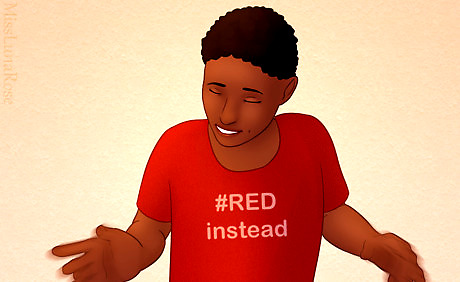
Consider autism traits that are not present in social anxiety. Autism is a pervasive developmental disability, and affects areas of life besides socializing. Autistic people will experience most or all of... Atypical development: may hit milestones more slowly, more quickly, and/or out of order Stimming (unusual movements that stimulate the senses) Passionate special interests about a few select topic(s) Sensory issues (under- or over-sensitivity) Delayed, missing, or unusual social skills (e.g. not understanding figurative language or not using gestures when speaking) Speech or vocal quirks, like speaking in an unusual tone or echolalia (i.e., repeating words or phrases) Difficulty developing independence skills, such as cooking or bathing Motor skills delays or difficulties Strong need for routine and familiarity Meltdowns and/or shutdowns when overwhelmed Unusual behavior during childhood (for example, they may not have responded to being comforted, didn't use body language appropriately, or didn't engage in visible imaginative play)
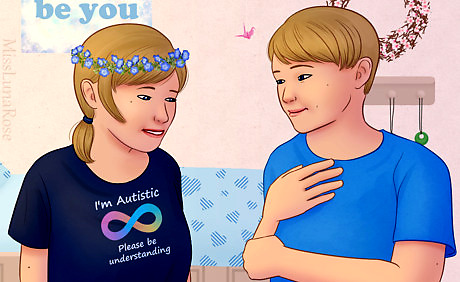
Look at the onset. Autism begins prenatally, and is lifelong. Social anxiety is often caused by a sudden or ongoing issue (moving house, traumatic bullying, abuse, etc.). Social anxiety can be cured with proper treatment. Social anxiety can develop at any age, but commonly starts during adolescence or young adulthood. It's not as likely to develop in young children. Autism is usually noticed in childhood, or during a stressful transition (such as moving house or starting college). Late-diagnosed autistics can look back and recognize signs they showed in childhood.Tip: Think back to previous social interactions during childhood. Social anxiety tends to either appear suddenly or over a period of time when it wasn't present before, whereas social and behavioral quirks of autism will always be present from a young age.
Moving Forward
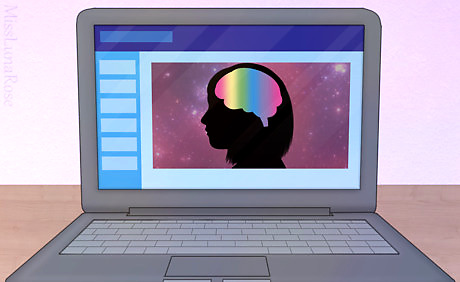
Look up what autistics and people with social anxiety have to say about their lives. This can help give a human aspect to the symptoms you read about. It may be easier to relate to stories like "My chest clenches every time a stranger visits my house" than "Nervous around people."
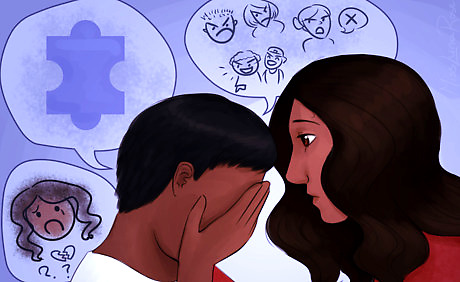
Consider the possibility of both conditions. Autistic people often struggle socially and are at risk for being bullied, meaning that they may develop social anxiety as a result. It is very common for autistic people experience one or more mental health disorders, such as anxiety, depression, and others. If you suspect autism, don't rule out anxiety.
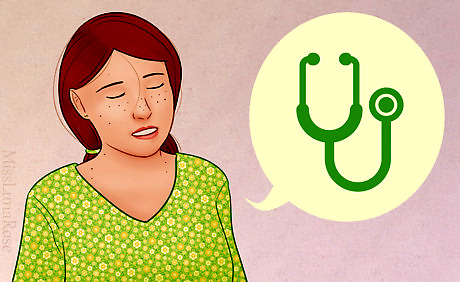
Make an appointment with a psychologist to get yourself or your loved one screened. A psychologist can administer questionnaires and conduct interviews to help determine the appropriate diagnosis/diagnoses. An autism diagnosis can be hard to get, especially for adults, females, and people of color. Some autistics self-diagnose for this reason. Self-diagnosis grants you access to the Autistic community, but you can't get accommodations without an official diagnosis.
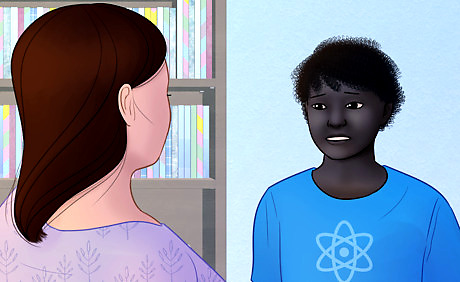
Talk to the psychologist if you suspect misdiagnosis. Since autism and anxiety can look similar, it's important to put time and thought into the diagnosis, and speak up if there's a potential mistake. Be open and honest about any concerns. An autistic person may falsely test positive on a social anxiety screening, especially if they are asked questions like "I prefer to be alone" or "Social situations can be overwhelming."
















Comments
0 comment